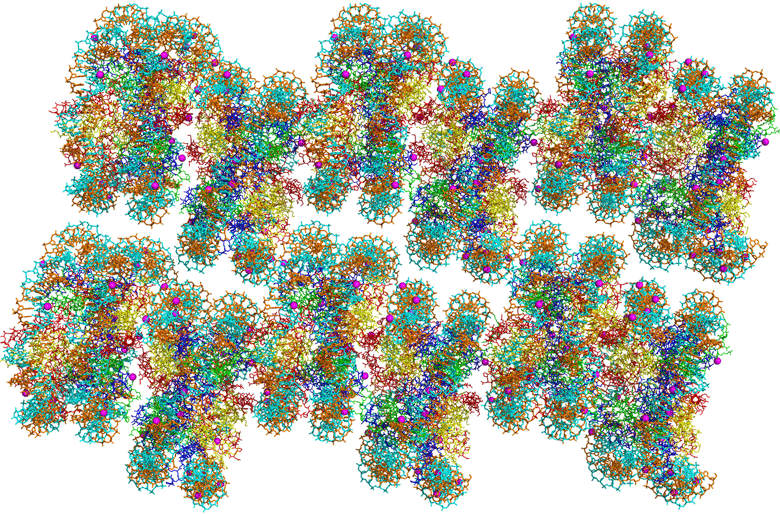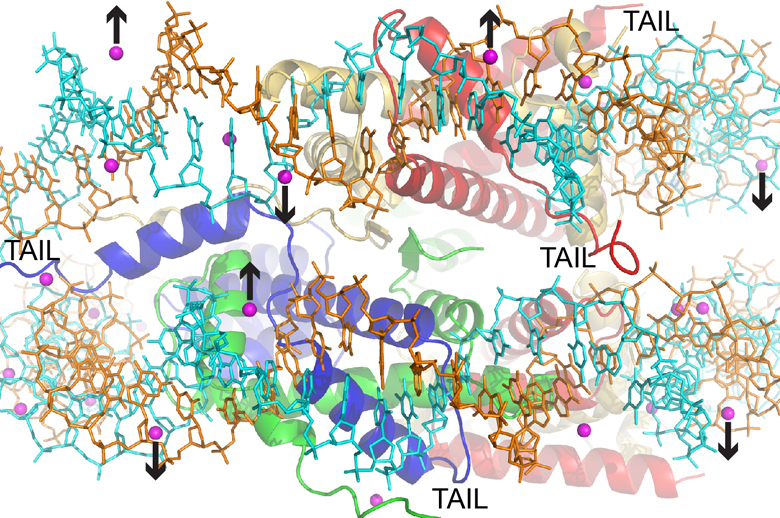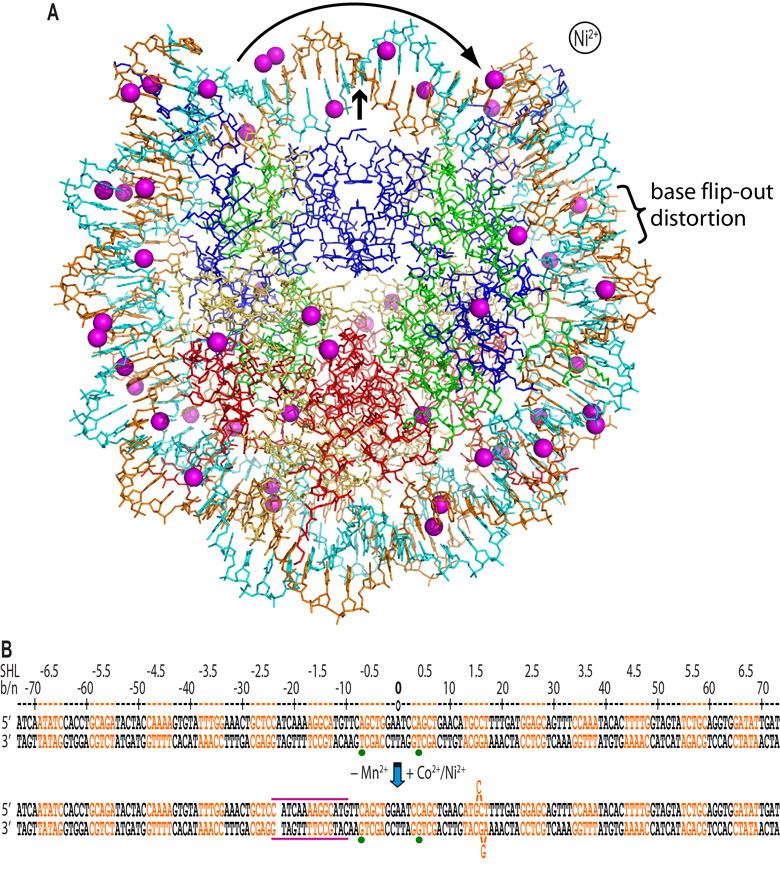The genome is dynamically regulated by alterations in nucleosome positioning, stability, compaction state and composition, which influence the binding of nuclear factors by modulating the context and accessibility of target protein and DNA sites. We are studying how nucleosomes and chromatin fiber are recognized and influenced by metals, xenobiotics, drugs and therapeutic candidates as well as by nuclear proteins, such as DNA repair, apoptotic and developmental transcription factors.

Nucleosome core particle packing in crystals suggests possibilities for nucleosome-nucleosome interactions in vivo and unique binding surfaces available in compacted states of chromatin (Wu, Mohideen, Vasudevan, Davey, 2010).

Divalent metal cations can both collaborate (at low/medium concentration) and compete (at elevated concentration) with the histone tails for association with the DNA minor groove, which helps rationalize nucleosome stability/solubility and chromatin compaction behavior (Wu, Davey, 2010).

Heavy metal cations with toxic potential, such as Co(2+) and Ni(2+), can induce distortions in nucleosomal DNA, which may contribute to their pathological effects (Mohideen, Muhammad, Davey, 2010).
